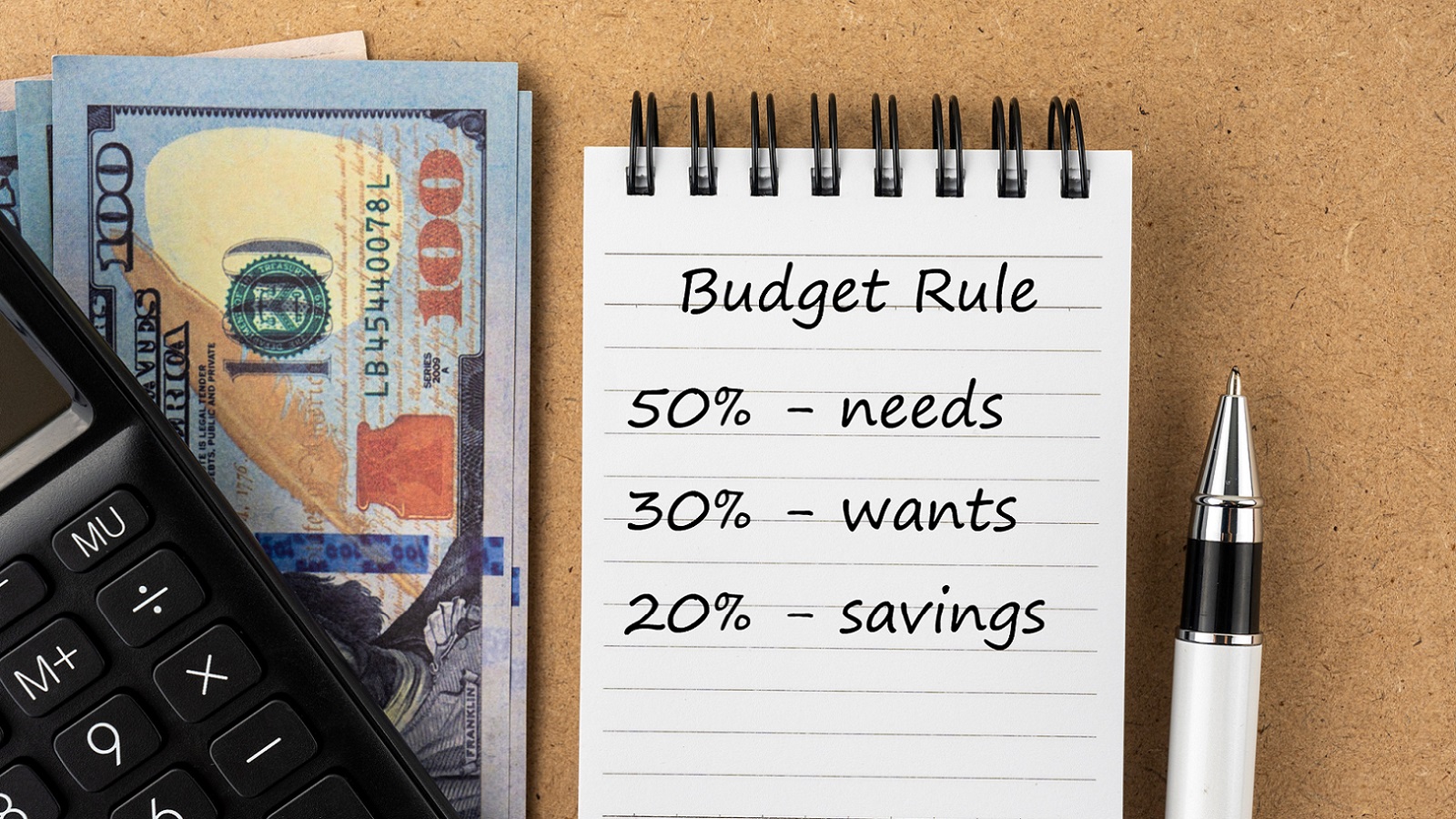Giving to Charity When You're on a Budget
Don’t forget that your time has value, too. Volunteering is the best way to see if you like how the charity is run.


Profit and prosper with the best of Kiplinger's advice on investing, taxes, retirement, personal finance and much more. Delivered daily. Enter your email in the box and click Sign Me Up.
You are now subscribed
Your newsletter sign-up was successful
Want to add more newsletters?

Delivered daily
Kiplinger Today
Profit and prosper with the best of Kiplinger's advice on investing, taxes, retirement, personal finance and much more delivered daily. Smart money moves start here.

Sent five days a week
Kiplinger A Step Ahead
Get practical help to make better financial decisions in your everyday life, from spending to savings on top deals.

Delivered daily
Kiplinger Closing Bell
Get today's biggest financial and investing headlines delivered to your inbox every day the U.S. stock market is open.

Sent twice a week
Kiplinger Adviser Intel
Financial pros across the country share best practices and fresh tactics to preserve and grow your wealth.

Delivered weekly
Kiplinger Tax Tips
Trim your federal and state tax bills with practical tax-planning and tax-cutting strategies.

Sent twice a week
Kiplinger Retirement Tips
Your twice-a-week guide to planning and enjoying a financially secure and richly rewarding retirement

Sent bimonthly.
Kiplinger Adviser Angle
Insights for advisers, wealth managers and other financial professionals.

Sent twice a week
Kiplinger Investing Weekly
Your twice-a-week roundup of promising stocks, funds, companies and industries you should consider, ones you should avoid, and why.

Sent weekly for six weeks
Kiplinger Invest for Retirement
Your step-by-step six-part series on how to invest for retirement, from devising a successful strategy to exactly which investments to choose.
A few issues ago, I interviewed Doug Lynam, a former monk who now works as a money manager in Santa Fe, N.M. (see Building Wealth With a Higher Purpose). One of the topics we discussed was the importance of charitable giving, and it got me thinking: How can I make a difference on a limited budget?
One strategy is to combine philanthropy and saving by investing in companies that seek to make the world a better place. There are apps that will help you do that. The Stash app, for example, identifies exchange-traded funds and individual stocks that allow you to invest in companies that align with your convictions, from clean energy to workplace equality. (You can also invest in specific sectors or pick ETFs that match your risk tolerance.) You need only $5 to open a Stash account, and you’ll pay just $1 per month for a beginner’s account. Another option: Find out if your 401(k) plan offers a socially responsible fund, such as Vanguard Global ESG Select Stock (symbol VEIGX) or Parnassus Mid Cap (PARMX), a member of the Kiplinger 25 list of our favorite actively managed no-load mutual funds.
Apps and socially responsible funds may sound like an easy way to hop into the charity lane, but they may not be a smart investment strategy—particularly if you’re new to investing, says Pamela Capalad, a certified financial planner and founder of Brunch and Budget. You could end up with a portfolio that’s not sufficiently diversified, she says. Capalad believes there are ways to give money that are more effective.
From just $107.88 $24.99 for Kiplinger Personal Finance
Become a smarter, better informed investor. Subscribe from just $107.88 $24.99, plus get up to 4 Special Issues

Sign up for Kiplinger’s Free Newsletters
Profit and prosper with the best of expert advice on investing, taxes, retirement, personal finance and more - straight to your e-mail.
Profit and prosper with the best of expert advice - straight to your e-mail.
Giving directly. Like most millennials, I’ve been bombarded with charitable solicitations on social media. Facebook added a feature in 2017 that allows users to request donations to their favorite charity in lieu of birthday gifts. Depending on how many Facebook friends you have, the posts can be overwhelming, and unless you vet the charities, you have no idea how the money will be used. Donating small amounts to multiple causes may seem like the most generous thing to do, but experts say you can make a much greater impact by limiting your donations to one or two charities.
GoFundMe pitches tend to populate my Facebook news feed as well, and some of these are even more troubling. You’re usually prompted to help people or organizations that one of your friends has heard about, but you have no way of knowing if help is actually needed or if the fund-raiser is a scam. In 2017, a couple collected close to $400,000 from donors purportedly to help a homeless man who lent the couple his last $20. All three have been charged with fraud.
If something on your social media feed does catch your attention, do your homework. You can look up charities on Charity Navigator and the Better Business Bureau’s Wise Giving Alliance site (www.give.org). Charity Navigator rates charities on financial health and accountability; the Wise Giving Alliance checks out governance, fund-raising, effectiveness and donor privacy. You’ll also want to search the internet for complaints and reviews about the charity. If the charity is mostly local, try searching for it on your region’s Better Business Bureau website.
To be able to give more generously, Capalad suggests creating a line item in your budget for charity and shifting money from things you don’t use often, such as subscriptions to streaming services. For example, if I canceled my streaming subscriptions, which cost me about $21 a month, I could give $252 a year to charity. And don’t forget that your time has value, too. Lynam says volunteering is the best way to see if you like how the charity is run.
I’m still on the fence about where I would like my charitable dollars to go, and I’m reluctant to give up my HBO account. So in the meantime, I’m looking into volunteering at local cat shelters.
Profit and prosper with the best of Kiplinger's advice on investing, taxes, retirement, personal finance and much more. Delivered daily. Enter your email in the box and click Sign Me Up.

Rivan joined Kiplinger on Leap Day 2016 as a reporter for Kiplinger's Personal Finance magazine. A Michigan native, she graduated from the University of Michigan in 2014 and from there freelanced as a local copy editor and proofreader, and served as a research assistant to a local Detroit journalist. Her work has been featured in the Ann Arbor Observer and Sage Business Researcher. She is currently assistant editor, personal finance at The Washington Post.
-
 The New Reality for Entertainment
The New Reality for EntertainmentThe Kiplinger Letter The entertainment industry is shifting as movie and TV companies face fierce competition, fight for attention and cope with artificial intelligence.
-
 Stocks Sink With Alphabet, Bitcoin: Stock Market Today
Stocks Sink With Alphabet, Bitcoin: Stock Market TodayA dismal round of jobs data did little to lift sentiment on Thursday.
-
 Betting on Super Bowl 2026? New IRS Tax Changes Could Cost You
Betting on Super Bowl 2026? New IRS Tax Changes Could Cost YouTaxable Income When Super Bowl LX hype fades, some fans may be surprised to learn that sports betting tax rules have shifted.
-
 I Need to Cut $1,000 From My Monthly Budget, and I've Already Given Up Starbucks and Dining Out. What Else Can I Do?
I Need to Cut $1,000 From My Monthly Budget, and I've Already Given Up Starbucks and Dining Out. What Else Can I Do?Here are some creative ways to save up to $1,000 a month, even if you feel like you've already made all of the obvious cuts.
-
 I'm a Government Employee and Need to Get By Until the Shutdown Ends. What Can I Do?
I'm a Government Employee and Need to Get By Until the Shutdown Ends. What Can I Do?The second-longest shutdown in history is leaving many federal workers with bills due and no paycheck to cover them. Here's what you can do to get by.
-
 What Does Medicare Not Cover? Eight Things You Should Know
What Does Medicare Not Cover? Eight Things You Should KnowMedicare Part A and Part B leave gaps in your healthcare coverage. But Medicare Advantage has problems, too.
-
 When Renting Is Smarter Than Buying
When Renting Is Smarter Than Buyingreal estate There are some situations when renting is smarter than buying. You're not necessarily throwing your money away when you rent.
-
 The 50-30-20 Budget Rule: A Simple Way to Save Money
The 50-30-20 Budget Rule: A Simple Way to Save MoneySaving Using the 50-30-20 budget rule is an easy way to save. It helps you prioritize saving while paying off debt.
-
 'Food Tax': Which States Still Tax Groceries?
'Food Tax': Which States Still Tax Groceries?State Tax Ten states still tax groceries, but that figure is shrinking.
-
 How Do You Pay off Credit Card Debt?
How Do You Pay off Credit Card Debt?Making Your Money Last Pay off credit card debt with these tried-and-true strategies.
-
 Bear Market Strategy for Millennial Investors
Bear Market Strategy for Millennial InvestorsA focused, goal-oriented approach to investing can help millennials navigate a bear market.